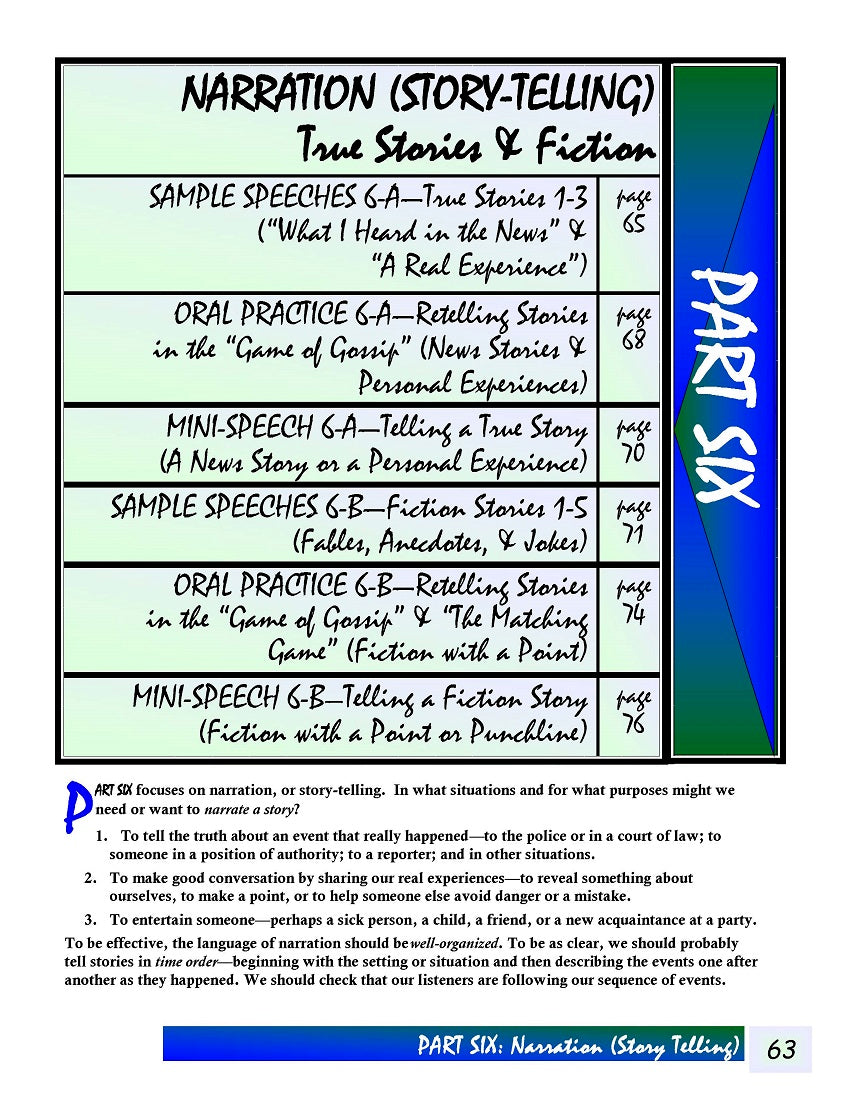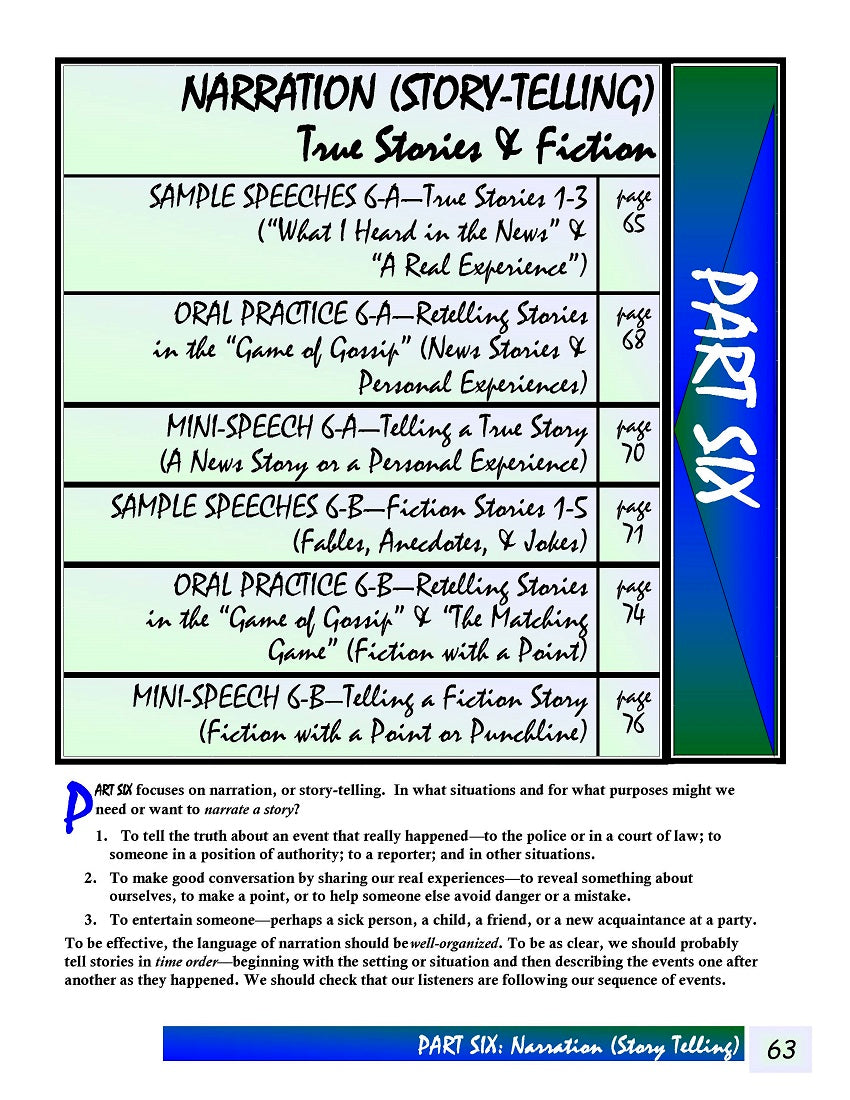Work/Life English
E-10.12 Understand & Tell (Un) True Stories: News, Personal Experience & Fiction
E-10.12 Understand & Tell (Un) True Stories: News, Personal Experience & Fiction
Part Six of Speaking: Oral Language Skills for Real-Life Communication = Narration: Story-Telling (True Stories & Fiction), pages 63-76
14 pages
Who It’s For: (Teachers & Helpers of) Progressing Language Learners Who Like—or Want to Get Into—Story-Telling: News, Personal Experiences, Fables, Anecdotes, Jokes
Why It’s Useful: When we want to report an occurrence, share an experience, or entertain, we’re likely to “tell a story.” Here’s what Part Six says about narration:
“To be effective, the language of narration should be well-organized. To be clear, we should probably tell stories in time order—beginning with their setting and then describing events one after another as they happened. The best stories make a point, communicate a message, or “teach a lesson.” So that our listeners “get it,” we should be careful not to leave out any significant events. On the other hand, we shouldn’t include irrelevant details . . . . A story with too many words—or with a lot of repetition—will confuse listeners. They’ll get lost—or miss the message.”
So in the usual format of Speaking: Oral Language Skills for Real-Life Communication, after its pedagogy come Part Six Sample Speeches based on true stories, directed procedures for “Games of Gossip,” and Mini-Speeches that are Narratives of several different types.
What You’ll Do:
[1] “Warm up” by recalling the stories you most liked (or hated)—perhaps even filling in details of the situations in which you heard or told them. Take in the pedagogy of story-telling. Then enjoy listening to a few “true stories from the news”—as well as a masterful narration called “The Long March.” Check that you “got it.”
[2] In Oral Practice 6A, get into the routine of telling and retelling in a Structured Configuration called “the Game of Gossip.” (Each participant tells a story to the next person, who repeats it to the next, and so on—in a systematical fashion that reveals accuracy vs. miscommunication.) Then in turn, give your own Mini-Speech 6A, an account of a news story or a personal experience; hear and react to everyone else’s.
[3] The subject matter of Audio, Practice, & Speaking sections 6-B is all (to be) fictional. Follow suggested steps to hear Fables & Anecdotes (Jokes) 1-5. For each narrative, make sure that you get the point, the lesson, the moral, or the humor. Again following instructions for “the Game of Gossip,” tell and retell other stories that you know or have collected. Finally, when it’s your turn, deliver your best “Fiction with a Punch Line” to an audience. Hopefully, you’ll get laughs. Appreciate the efforts of all the other speakers, too.
Couldn't load pickup availability


